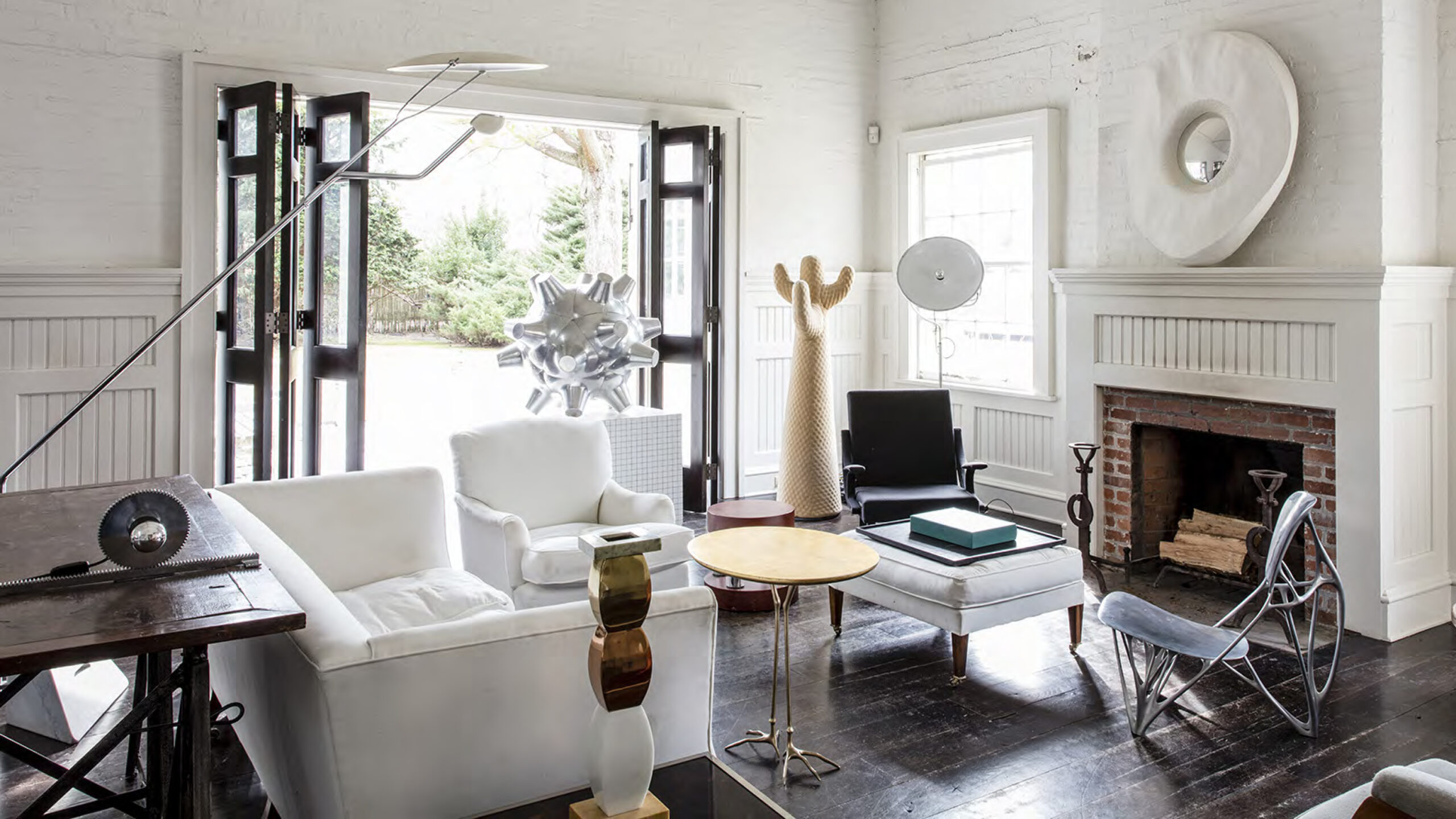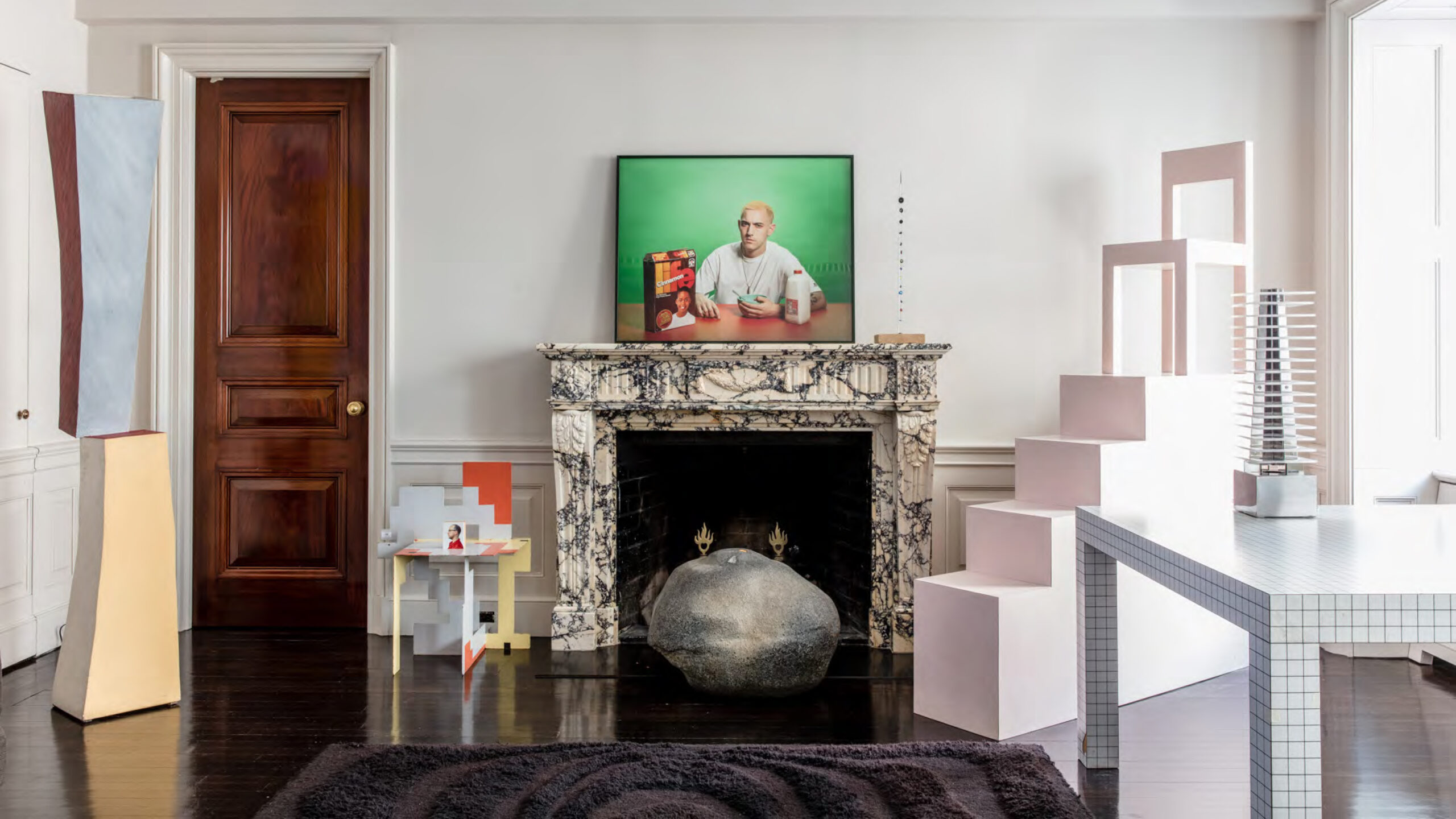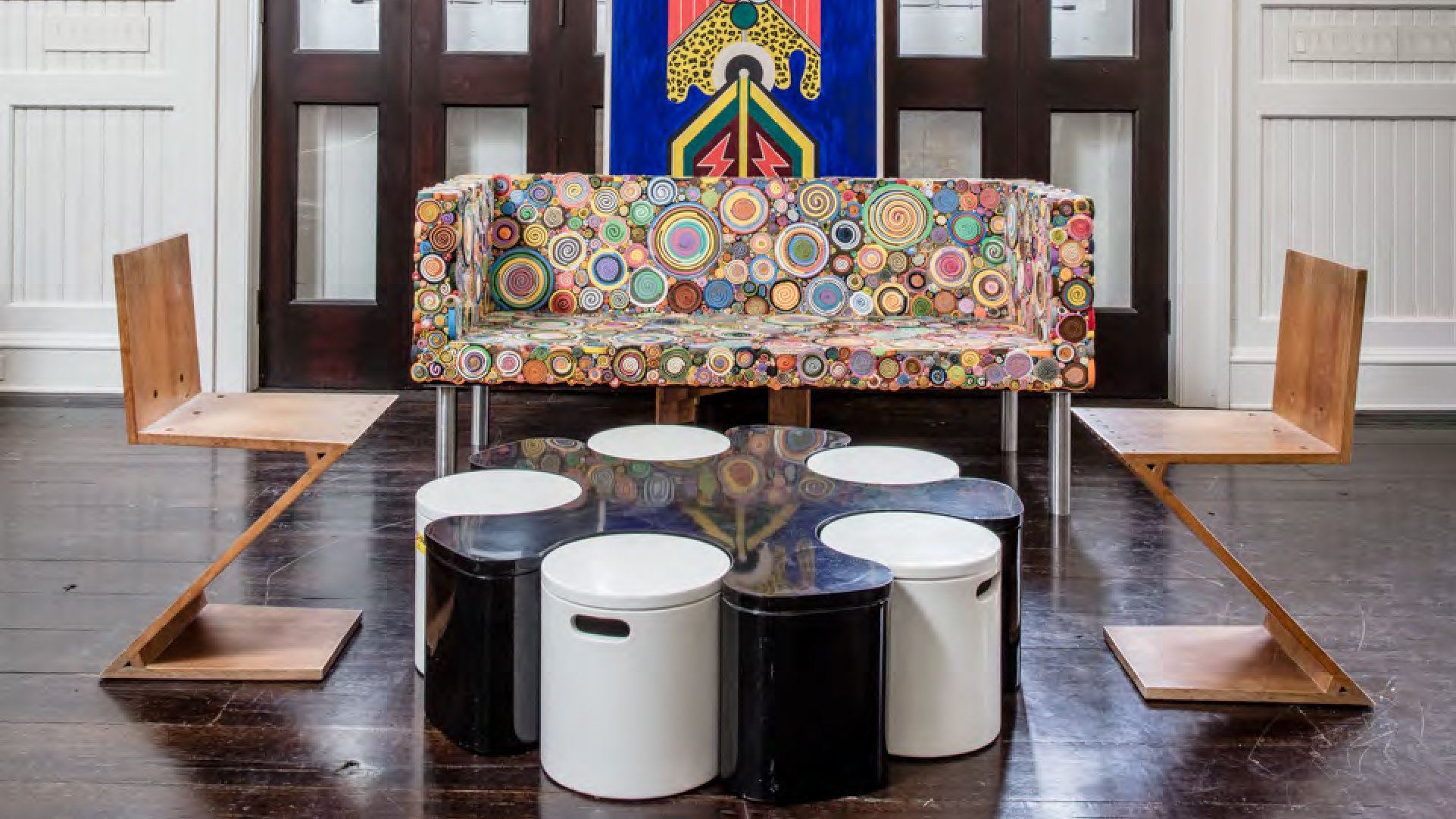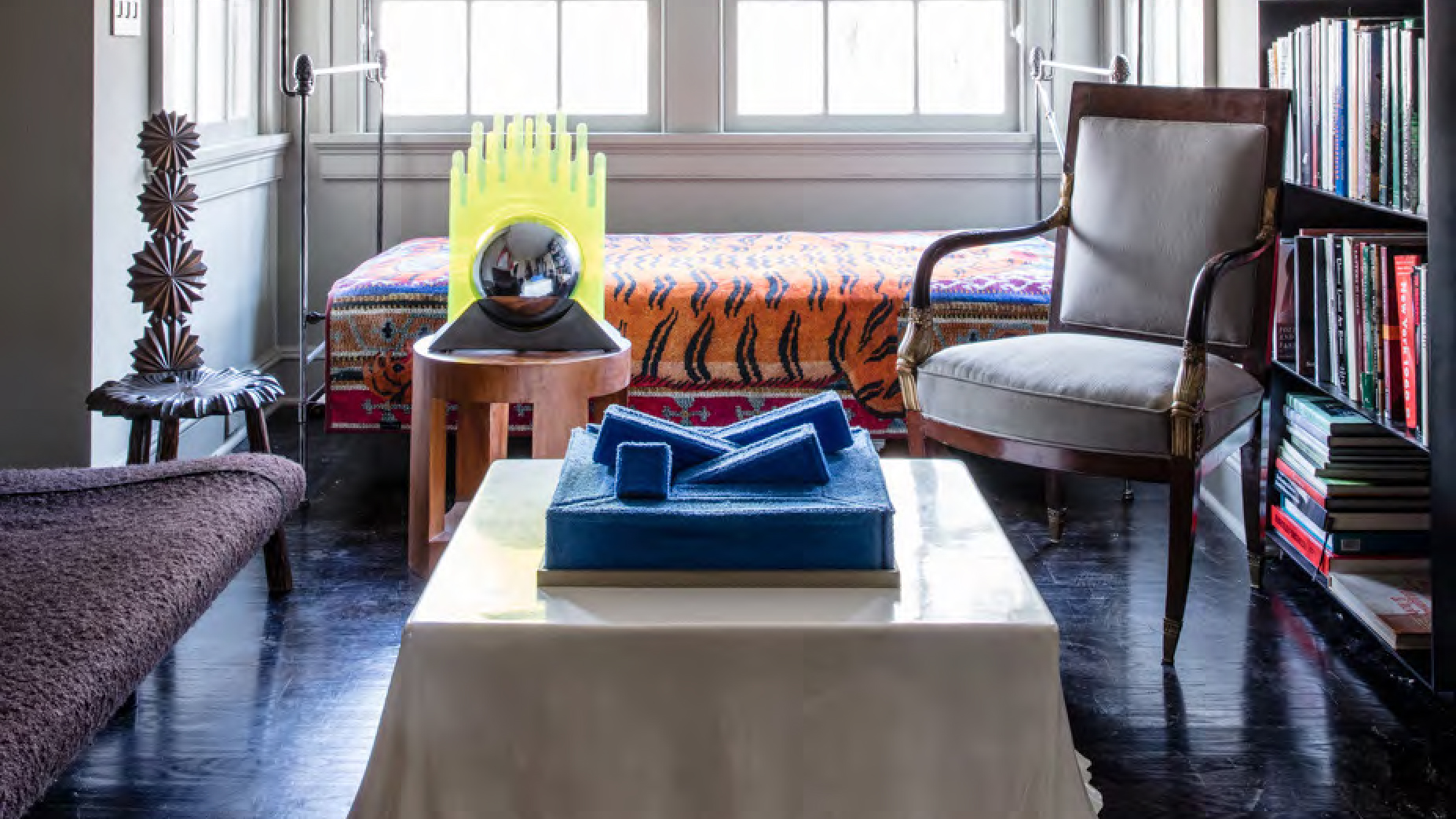Living with the Radical
Dennis Freedman at Home
Some people acquire collectible designs with specific destinations in mind—to anchor a seating vignette, to make a subversive statement in a foyer, to bring narrative to a wall niche. Creative consultant Dennis Freedman—whose collection is now on view at 64 White Street—has taken the exact opposite approach, designing and arranging his residences around an ever-growing portfolio of provocative, status-quo-challenging works.
Consider Studio 65’s Capitello lounge, the iconic work of radical Italian design that takes the form of a lopped-off Ionic column cap which, when Freedman bought it in 1998, took up half his Manhattan bedroom. Or Alessandro Mendini’s 1974 Monumentino da Casa, a 6-foot-tall disembodied staircase (with seat) that animates his current New York living room. Meanwhile, the centerpiece of his Hamptons house is a great room lofty enough to accommodate works like a 1969 Gaetano Pesce UP7 foot lounge and an Ettore Sottsass Svincolo floor lamp. “Pieces found their places in the room,” Freedman told The New York Times during a tour of the dwelling. Gut instinct and a curatorial eye for composition and conceptual frisson were what ultimately informed where works landed.
Freedman has been unafraid to live immersed in challenging pieces that take up a large spatial, visual, or conceptual footprint, and many of his items, such as a Tom Dixon 1990 Pylon chair, boast unusual or humorous forms that lean more sculptural than functional. Art advisor Simon Andrews, former Christie’s international specialist, describes Freedman’s holdings as “a collection to offer sanctuary to the furthermost tangents of innovation and expression”—adding that these were works “not easily domesticated.”
And yet Freedman has been able to do just that, even as his collection has evolved and complexified over the years. He’s long been devoted to acquiring items in all categories—seating, tables, storage pieces, lighting, objets, ephemera—and is drawn to works that most people would consider uncompanionable cohabitants: radical Italian lighting with 1919 Swedish Grace cast-iron urns; 2003 gilt-bronze Bronislaw Krzysztof armchairs with a 1984 Alessandro Mendini Zabro seat/table. What’s allowed these items to live together so cohesively is the ideological hook underpinning his passions.
Not to mention the connective tissue of taste. Freedman’s approach to connoisseurship is one shared with a group of tastemakers he’s long idolized: members of French high society who were renowned for comingling the antique and the avant-garde in their interiors. During the course of his career, Freedman gained access to the most legendary homes and collections in Europe, which honed a reverence for classic forms, albeit deconstructed and/or imbued with modern attitude.
R & Company director of museum services James Zemaitis describes Freedman’s “passion for what he calls the ‘poetry’ of French taste, the essence of which is to be found in the provenance of the Hôtel Lambert’s interiors, in the decorative arts collections of the Rothschilds, or the Left Bank residence of Hubert and Isabelle d’Ornano.” By continuing this vaunted decorative tradition and giving it his own twist, Freedman’s collection provides a model of—and abundant inspiration for—how to live with renegade designs.
The Dennis Freedman Collection is on view April 20–August 11, 2023.



